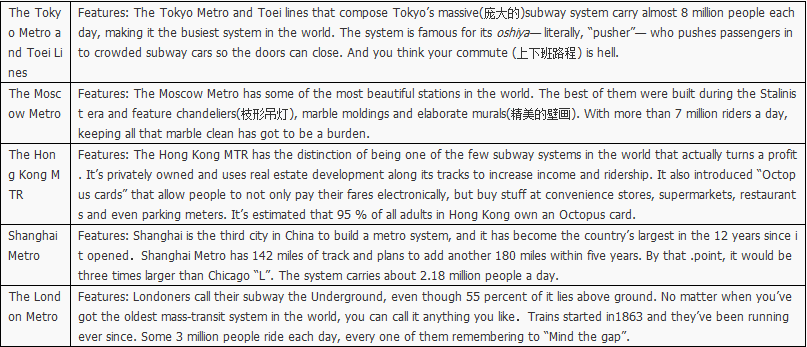
��Ŀ�� ��Դ�� �}�ͣ���x����

�鿴�𰸺ͽ���>>
��Ŀ�� ��Դ�� �}�ͣ���x����
�鿴�𰸺ͽ���>>
��Ŀ�� ��Դ�� �}�ͣ���x����
�鿴�𰸺ͽ���>>
��Ŀ�� ��Դ�� �}�ͣ���x����
�鿴�𰸺ͽ���>>
��Ŀ�� ��Դ�� �}�ͣ���x����
�鿴�𰸺ͽ���>>
��Ŀ�� ��Դ�� �}�ͣ���x����
The Internet has changed the world we live in dramatically, so that in some ways it is unrecognizable from the place we lived in twenty years ago. Communications have been revolutionized. Not only have cell phones found their way into most people��s pockets or purses, but they are also used for next messaging and as cameras. Long distance phone calls have been replaced by e-mail and video conferencing. Communications, person to person or company to company, have turned into a fast-paced exchange with instant response. In fact, it has become more convenient and efficient.
The other kind of communication the Internet provides is information. School children and medical researchers alike will tell you that they could not work without the Internet and its ability to connect them to any number of websites and databases of information. Many people do their banking on-line. Others plan a trip and book a flight for themselves. People do their own stock trading through the Net. Sports fans follow scores and statistics on websites. Political junkies(���ο�) gather campaign statements and debate topics, even between elections. And almost everyone who owns a computer and has Internet access has bought at least one item on-line. No wonder some young people can not imagine what life was like before the Internet.
Some Advantages of the Internet:
��.________ of the Internet communication
��A fast-paced exchange replacing long distance phone calls with________ like e-mail and vedio conferencing
��.Accessibitlity to the Internet information
��On-line________ service
Convenience to do banking at home or office
�� ________ service
Choices of booking traffic and accommodation
��Sports websites
Information about scores and statistics
��Political websites
Campaign statements and________
�鿴�𰸺ͽ���>>
��Ŀ�� ��Դ�� �}�ͣ���x����
�鿴�𰸺ͽ���>>
��Ŀ�� ��Դ�� �}�ͣ���x����
[1] Is the supermarket a place where you listen to music while dragging
your feet into it ? Despite the music , supermarket shopping can be
interesting . After all , once you��ve chosen those tasty foods , you get
to eat them . Before you seize a shopping cart and head for the
shopping areas , check out these tips for smart and healthy supermarket
shopping.
[2]You can go to a supermarket almost anytime you want-many are open 24 hours . Choosing______for your food shopping can help you shop smarter .
[3]Don��t shop when you��re hungry
If
your stomach is empty when you enter the store , you��ll be crazy when
you see all those tasty treats . Eat a healthy meal before you go to the
supermarket.
[4]Pick the best supermarket for you
If you have a
choice on where to shop , think about the kinds of things that you want
the store to have . A salad bar? A great seafood department of bakery?
Choose a supermarket that can make your shopping convenient and easy .
And once you��ve found a store you like , stick with it . Knowing where
to find the things you want in the store will help you find them faster.
[5]Shop during off-peak times
Did
you ever get stuck behind a person pushing the cart slowly in front of
you because the store was so crowded? Try to avoid stores when they��re
likely to be the busiest-after work hours (weekdays between 5 pm and 7
pm ) and weekend mornings , for example . The best time to shop is very
early in the morning or on a popular TV night-you can set your VCR, do
your shopping , and watch the shows later.
�鿴�𰸺ͽ���>>
��Ŀ�� ��Դ�� �}�ͣ���x����
�鿴�𰸺ͽ���>>
��Ŀ�� ��Դ�� �}�ͣ���x����
�鿴�𰸺ͽ���>>
����ʡ���W�`���Ͳ�����Ϣ�e��ƽ�_ | �W���к���Ϣ�e�^(q��) | ����p�_�e�^(q��) | ��vʷ̓�o���x�к���Ϣ�e�^(q��) | �����֙��e�^(q��)
�`���Ͳ�����Ϣ�e���Ԓ��027-86699610 �e���]�䣺58377363@163.com